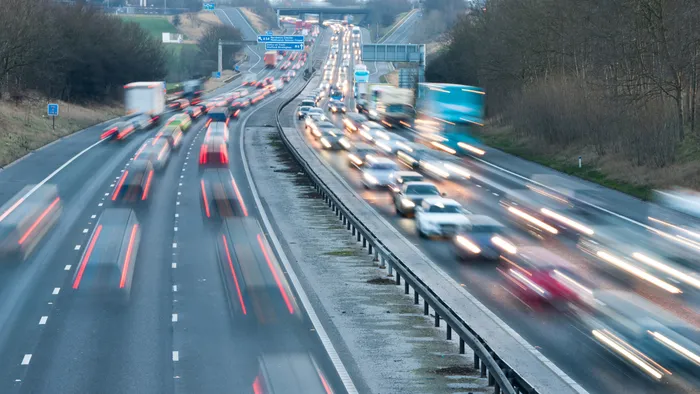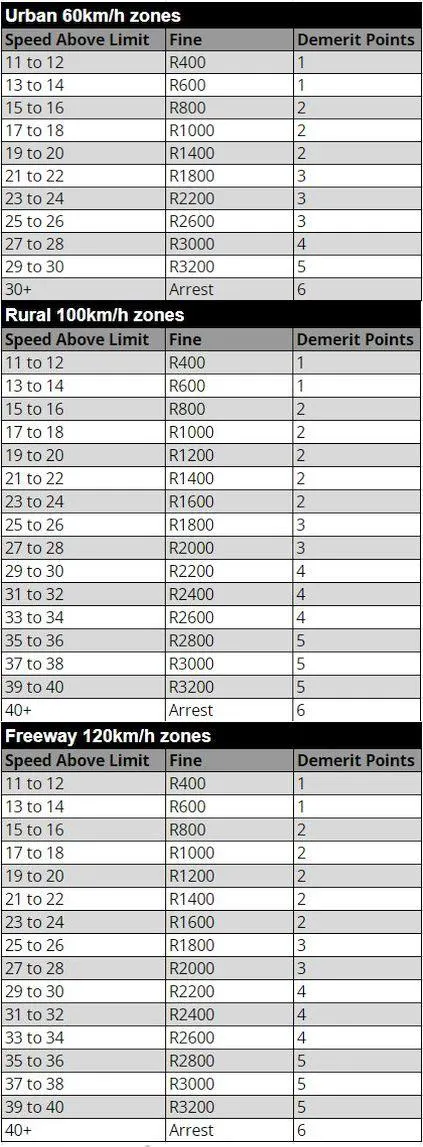AARTO: Here’s how fast you can drive without being fined and what fines you’ll pay beyond that

Motorists will still have a grace of 10km/h under the new AARTO system.
Image: Newspress
The Administrative Adjudication of Road Traffic Offences Amendment Act, commonly known as AARTO, officially comes into effect on December 1, 2025.
Most sections of the act will be implemented in major municipalities across the country from that date, with smaller municipalities following in April, but the dreaded demerit points system is only set to be rolled out in September 2026.
Nonetheless, speeding will still be a major factor that could lead to drivers losing demerit points and eventually facing licence suspension, and hefty fines are also on the cards for those caught exceeding the limit.
As before, there will still be a ‘grace’ of 10km/h for speeding infringements, the Road Traffic Infringement Agency (RTIA) has confirmed. This, authorities say, is to account for different speedometer calibrations. This means that if you’re driving in a 60km/h zone, you will only face a fine at 71km/h and beyond. In theory you can drive at up to 110km/h in a 100km/h zone and 130km/h in a 120km/h zone.
However, exceeding the speed limit by more than 30km/h in a 60km/h urban zone or 40km/h in a 100km/h or 120km/h rural zone will result in arrest, and six demerit points being taken off your licence. That means a speed as low as 90km/h in town can get you locked up, while 140km/h on a normal rural road or 160km/h on a freeway can also result in a sudden loss of your freedom.
Speeding fine amounts in South Africa
As for fines, the AARTO website stipulates a fine of R400 for driving at 71 to 72km/h in a 60km/h zone and R600 for 73-74km/h, with both carrying one demerit point.
One needs to drive just 77-78km/h in this zone to receive a R1,000 fine and 79-80km/h to be hit with a R1,400 ticket. The highest speeding penalty here is R3,200 for 89-90km/h.
The same pattern applies to freeway driving, with 131-132km/h earning a R400 fine and 159-160km/h bringing the total to R3,200, with five penalty points.

AARTO fine amounts and demerit points.
Image: Jason Woosey
How the points system works
Under the new system, every motorist begins with zero demerit points on their driving licence, with different demerit points prescribed for various offences. If a total of 15 points is exceeded, the licence will be suspended for three months for each point over this threshold. These rules also apply to vehicle operator cards.
More than two suspensions will lead to the licence being cancelled altogether, and the driver will then need to redo the entire licensing process, starting with a learner’s licence.
These demerit points don't stick to your licence forever; they fall away at a rate of one point for every three months of well-behaved driving, in which no additional points are accumulated.
ALSO READ: Here's what companies with vehicle fleets need to do to prepare for AARTO
One of the aims of AARTO is to decriminalise minor traffic offences in order to take strain off the courts.
Instead of sending summonses to those who failed to pay their fines, which often do not even reach the courts, the new system would encourage compliance by blocking the renewal of vehicle and driving licences for those with outstanding fines.
Motorists who pay their fines within 32 days will receive a 50% discount. If not paid during this initial period, the fine is elevated to RTIA level, where a courtesy letter is sent to remind recipients of their rights. Motorists then have a further 32 days in which to dispute the infringement or transfer it to another driver.
However, once the 64 days are up, an enforcement order may be issued, which blocks transgressors from renewing their licences.
IOL Motoring